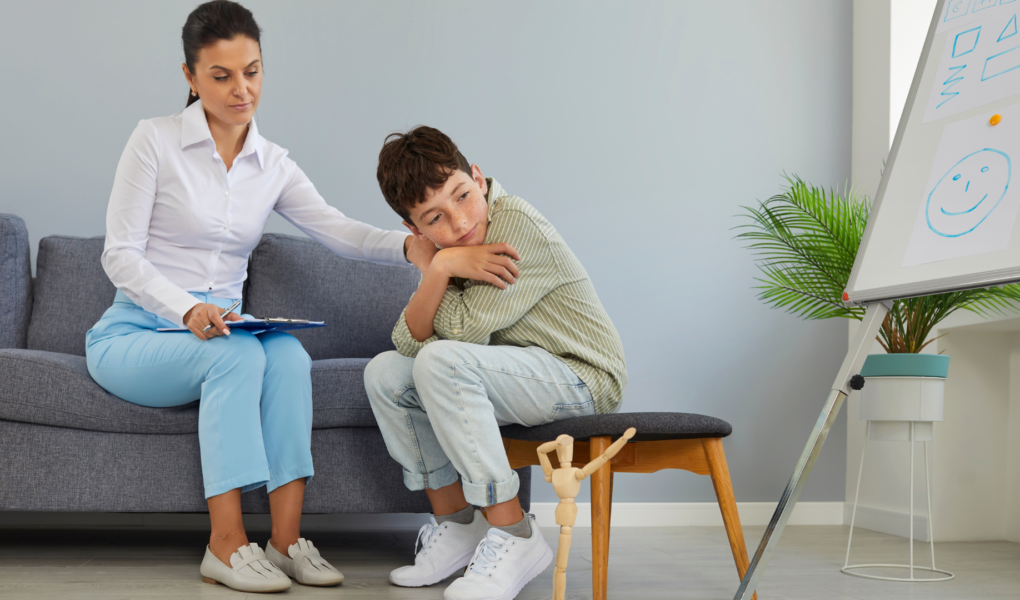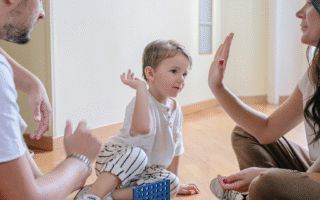Most children can learn, so they should not be labeled as having “behavior problems.” Yet, many educators and parents disagree. While it is true that all children misbehave at points, not all misbehaviors are the result of serious developmental issues. In fact, 12- to 18-month- old, in particular, tend to act out more and “seem to be motivated by curiosity.” It is important to understand that underlying problems do not cause all misbehaviors. The key is to identify why a child misbehaves so you can properly help.
School-age children are at a critical developmental stage, particularly in learning to be responsible and in charge of their own lives. While they do their best to learn, many are still unaware of how their actions can impact others and themselves (and frustration can lead to problems). Fortunately, there are things you can do to help your child develop properly during this stage of life.
Join a youth group.
Behavior problems in school-age kids can have serious, long-lasting effects on their lives. Knowing what to do when a child misbehaves can be challenging, whether the problem is a lack of focus or aggression. Instead of waiting to catch your child in the act, look for other solutions to behavioral problems that can help improve your child’s behavior. Joining a youth group is a proven way to teach kids self-control and is a wonderful way to help them develop empathy for others.
Enroll your child in an extra-curricular activity.
Enrolling your child in extracurricular activities can significantly impact behavioral issues, whether it’s a sports class, painting group, or Summer Camps in Lutherville, MD, or your preferred location. These activities can offer more than just enjoyment; they can provide invaluable opportunities for self-expression, building confidence, and fostering social growth.
Take sports, for example, like basketball or swimming; they are not just about scoring goals or perfecting strokes. They teach teamwork and perseverance, and physical activity can be a fantastic outlet for all that pent-up energy and stress. So, enrolling them in one of these activities could be a real blessing to nurture their overall development.
Likewise, learning a musical instrument, such as the keyboard or piano, can work wonders for your child’s focus and self-discipline. Plus, it’s a beautiful way for them to express themselves and channel their emotions positively. All it takes is bringing the instrument into your home, and setting up a cozy spot with an Adjustable Artist Piano Bench, so they can find just the right height as they grow. Then, watch as they embark on their musical journey, gaining confidence with each note they play. Thus, incorporating these activities into your child’s life can aid address behavioral issues and set them on a path of growth and empowerment.
Have friends over after school.
Having friends over after school can greatly impact a child’s behavior and academic success. Studies show that children with their own space in the house and their own room are less likely to act out or exhibit aggressive or violent behavior.
Give your child responsibilities.
School-age children often show unruly behavior due to boredom. When students are bored, they often act out. Parents often blame the child’s bad behavior on a lack of supervision or discipline. However, research shows when children are bored; teachers often assume the child is misbehaving, even if the child is simply bored. During those times, children often act out to get attention, be rewarded for good behavior, or even simply stop boredom. As a parent, you can reduce unwanted behavior by involving your child in extracurricular activities and giving them responsibilities.
Take the attitude that your child is misbehaving.
Behavior problems are common in children, but that does not mean it is better to let them run rampant through the house and school. When misbehavior becomes unmanageable, it can have a negative impact on your child’s schooling and self-esteem. One helpful approach is to explore a student wellbeing program in Australia or similar initiative available in your region. These programs are designed to support emotional development, teach coping strategies, and encourage positive behavior, helping children better manage their emotions and interactions both in and out of the classroom. Taking proactive steps like these can make a meaningful difference in your child’s confidence, behavior, and overall school experience.
Let your child have problems at home.
School-age children often face behavior problems, but parents can help curb these. Keeping a tidy house, setting appropriate limits, and being consistent are a few of the most important ways to make sure your child is getting along well at home, so the behavior problems at school do not become chronic issues.
Behavior problems are a major cause of concern for parents, teachers, and school administrators since they can cause major disruptions for students. Fortunately, behavior problems at school can be prevented and treated. Parents and teachers can learn how to develop and implement behavior plans at home, and school administrators can enact policies that help teach students positive behavioral choices and techniques.
Parents can also try teaching their children to make better decisions and curb disruptive behavior using the “1-2-3 Rule.” This rule suggests that your child should first learn to stop a thought or an action, then learn two alternatives, then finally learn three alternatives.
Many behavior problems seem to have emerged from a culture of child-centered teaching that focuses on kids as active participants in the classroom. The consequence is that teachers often find themselves feeling forced to instruct kids who hate school. In other words, they become as miserable as their students.
The more success you have had with your children, the more effective your parenting will be. If you can recognize specific behavior problems, you can decrease them. By controlling your temperament, you can emphasize positive behaviors. The better you communicate, the more your children will trust you. By setting boundaries, you can enforce rules and limits. The more you praise your children, the more they will respect you. If you are consistent, your children will learn from your actions. Children deal with more stress than adults. School structure creates anxiety, and peer pressure adds to that stress. The more ways you have of reducing stress, the easier it will be for you to help your children through the inevitable struggles.




